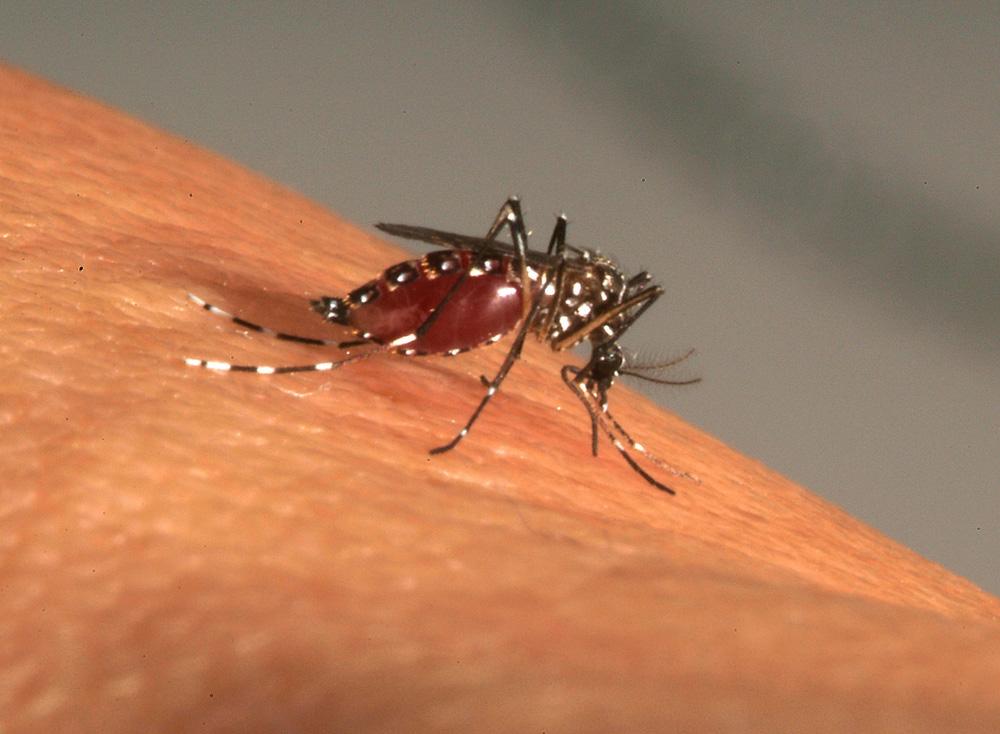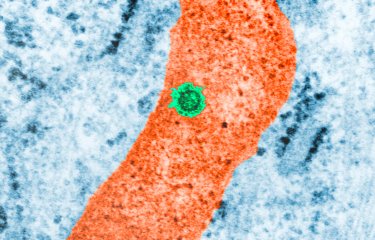Dengue is currently the most common insect-borne viral disease of humans worldwide. Scientists from the Institut Pasteur, the French National Center for Scientific Research (CNRS), and the Armed Forces Research Institute of Medical Sciences (AFRIMS) have discovered several genetic factors controlling the transmission of various dengue virus strains in a natural population of mosquitoes in Thailand. Their results indicate that the transmission of these viruses in nature depends not only on mosquito genetic factors but also on their specific interaction with viral genetic factors. This discovery significantly advances our understanding of dengue biology in nature. From a more general standpoint, this study also refines our view of the genetic basis of host-pathogen interactions. This work was published August 1st, 2013 on the PLoS Genetics website.
Press release
Paris, august 2, 2013

In order to identify new targets to combat this disease and interrupt its life cycle, several teams around the world are focusing on interactions between dengue viruses and their mosquito vectors. Until now, most of the studies on this topic used relatively “artificial” laboratory insects. However, under the direction of Louis Lambrechts of the Insects and Infectious Diseases laboratory (Institut Pasteur/CNRS), scientists from the Institut Pasteur, CNRS, and AFRIMS examined wild mosquitoes collected in Thailand.
The scientists conducted a survey of genetic factors in Aedes aegypti (the primary dengue vector) that influence virus transmission in nature. To do this, they measured the genetic predisposition of mosquitoes to transmit different genetic variants of the virus obtained from patients living in the region where the insects were collected. The scientists discovered that a set of genetic factors making mosquitoes more or less able to transmit dengue viruses were present in the natural mosquito population under study. Surprisingly, the effect of some of these genetic factors depended on which strain of the virus the insect was exposed to. Consequently, a genetic factor conferring resistance to one virus strain may turn into a susceptibility factor against another strain. The scientists therefore concluded that virus transmission is the result of a complex interaction between genetic factors in both the mosquito and the virus.
These findings significantly improve our understanding of dengue biology in nature and open up new avenues of application, such as developing strategies to inhibit dengue virus development in mosquitoes so that they can no longer transmit the virus.
For Louis Lambrechts, CNRS researcher at the Institut Pasteur, "these findings also have fundamental implications for the genetics of susceptibility to infectious diseases beyond the mosquito-virus system: they suggest that the effect of host genetic factors may vary depending on the genetic variations of the pathogenic agent itself”. Therefore, genetic susceptibility to infectious diseases is not solely an intrinsic characteristic of the host but is also a trait shared with the pathogen.
--
Illustration - Copyright Institut Pasteur
Caption - Aedes aegypti, primary mosquito vector for dengue.
Source
Genetic Mapping of Specific Interactions between Aedes aegypti Mosquitoes and Dengue Viruses, Plos Genetics, August 1St, 2013
Thanyalak Fansiri (1,2), Albin Fontaine (1), Laure Diancourt (3), Valérie Caro (3), Butsaya Thaisomboonsuk (4), Jason H. Richardson (2), Richard G. Jarman (4), Alongkot Ponlawat (2) and Louis Lambrechts (1)
(1) Institut Pasteur, Centre National de la Recherche Scientifique, Unité de Recherche Associée 3012, Paris, France.
(2) Department of Entomology, Armed Forces Research Institute of Medical Sciences, Bangkok, Thailand.
(3) Institut Pasteur, Genotyping of Pathogens and Public Health, Paris, France.
(4) Department of Virology, Armed Forces Research Institute of Medical Sciences, Bangkok, Thailand.
Contact
Service de presse de l’Institut Pasteur
Jérémy Lescène - Jeremy.lescene@pasteur.fr - +33 (0)1 45 68 81 01
Nadine Peyrolo - nadine.peyrolo@pasteur.fr - +33 (0)1 45 68 81 47



